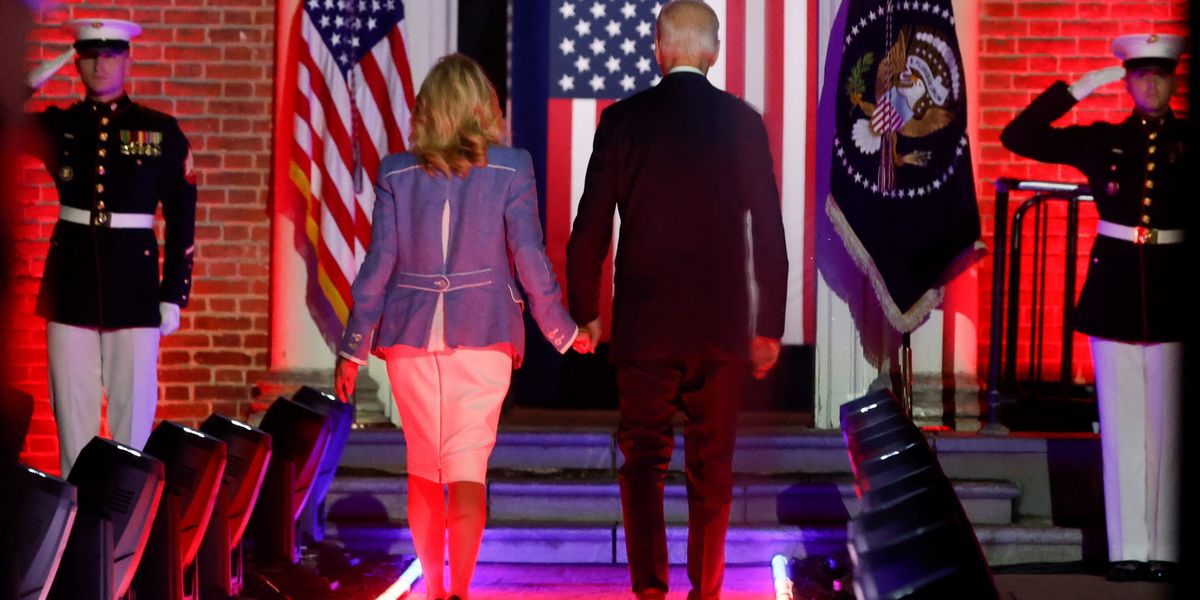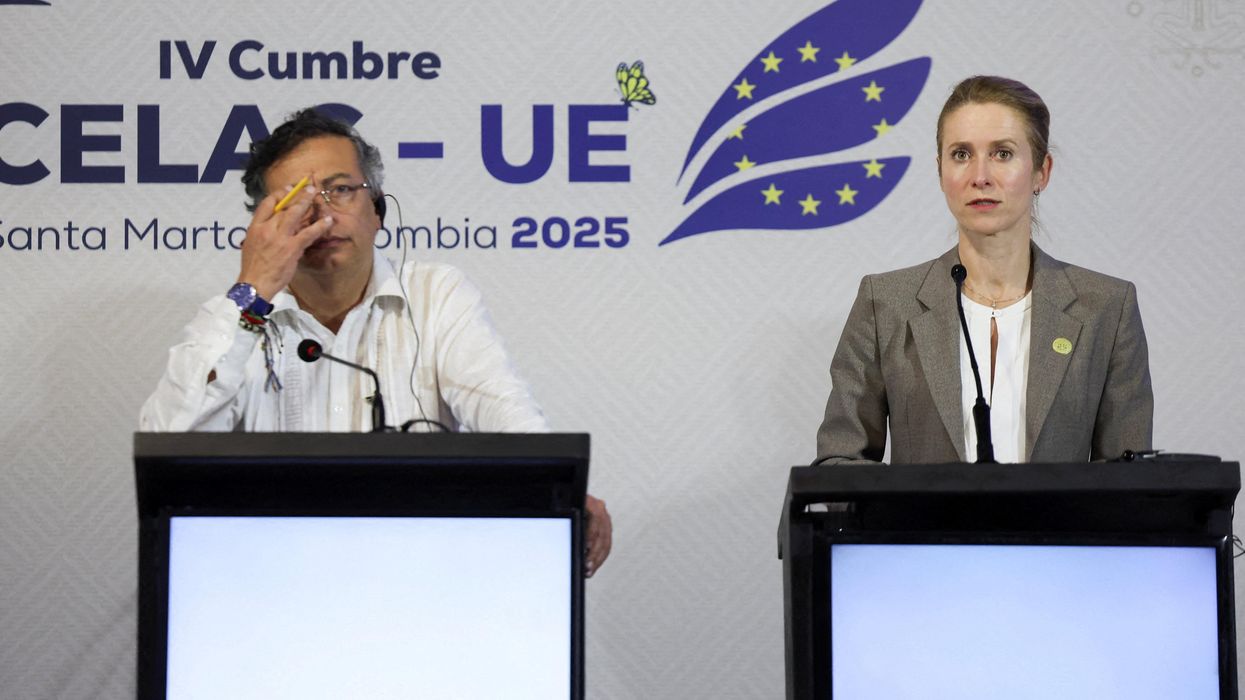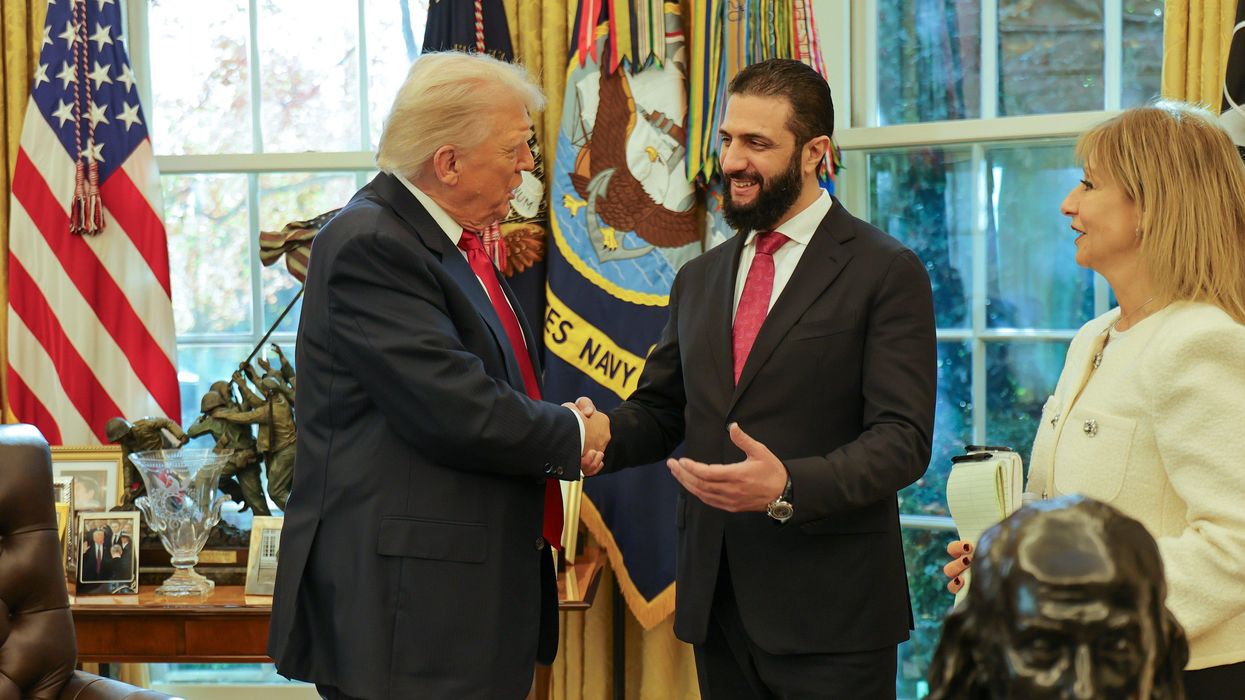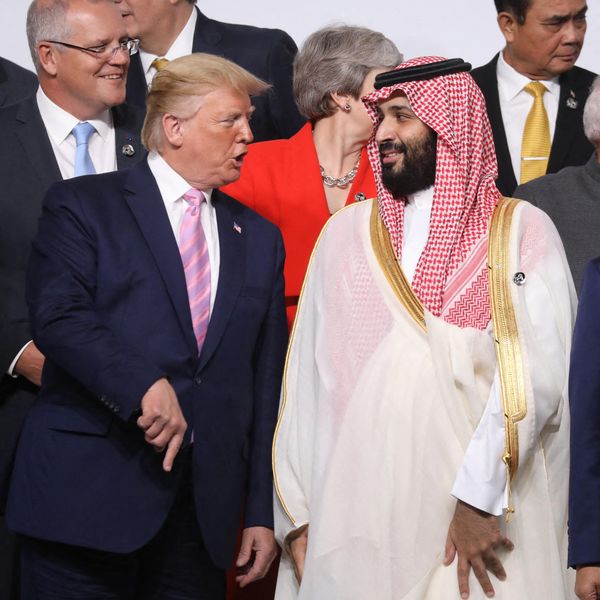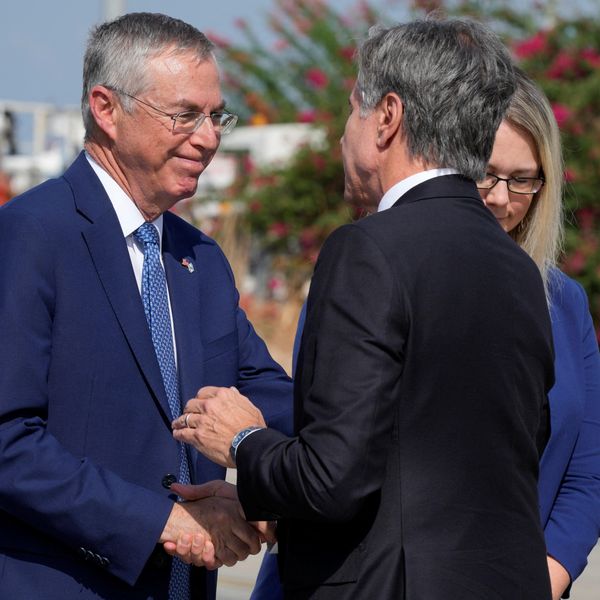Joe Biden’s place in history is as the man under whom the liberal international order unraveled.
America has suffered bouts of inflation before, and while Biden’s domestic failures will be remembered, they will not stand out as singular. In foreign policy, however, Biden has written the end of a chapter not only in America’s story but in the world’s as well.
Far from representing “hope and change,” the slogan on which he and Barack Obama were elected in 2008, Biden has personified the hopelessness and stagnation of the West’s post-Cold War foreign policy.
In 2008 voters demanded something new and trusted Obama’s ticket to deliver it. The regime-change projects of the “Global War on Terror” under George W. Bush had been sold to the public as a “cakewalk” and a liberation of foreign populations who would greet our soldiers with flowers. Seven years into the Afghan War and after five in Iraq, it was clear that Bush and those who followed him had no way out of these conflicts, which were being fought not in order to be won — since victory could hardly even be defined — but simply to postpone defeat.
These were open-ended “forever wars.” Obama, with Biden by his side, was handed a mandate to end them and chart a different course. They failed to do so and instead maintained the disastrous direction that had been set in the early 1990s.
The failure of the post-Cold War presidents
George H.W. Bush had never really been able to end the 1991 Gulf War, which continued under Bill Clinton with the enforcement of no-fly zones and sanctions, as Washington entertained a series of neoconservative dreams and schemes for regime change in Iraq.
The 2003 invasion of Iraq, then, was a drastic escalation of a war that had already been underway. Yet once Saddam Hussein was overthrown, the war still didn’t end. Washington’s aims of nation-building, regional transformation, and promoting democracy and liberalism were so ill-defined and unrealistic that even a supposedly successful war could only be a prelude to further conflict.
Iraq was a clear symbol of how far American policy had gone awry, but the same mentality of doubling-down on misjudged commitments was to be seen on a grander scale, too. After each wave of NATO expansion, for example, Russia became more rather than less threatening. If the purpose of NATO expansion was to make Europe more secure, the contrast between the security environment of 1992 and that of 2025 delivers a damning verdict — all the more so when contrasted with the success a more limited NATO enjoyed in checking the Soviet Union until its demise.
As if on autopilot, and heedless of results, America’s post-Cold War presidents and the Washington foreign-policy “Blob” pursued a comprehensive neoliberal (and neoconservative) agenda, which included expanding international institutions, promoting global economic integration, castigating nationalist movements of all sorts, deploying U.S. military forces as police and social workers in trouble spots anywhere and everywhere, and fostering regime change by any means necessary in certain targeted countries. All this required not only the continuation but the amplification of America’s Cold War intelligence and surveillance apparatus.
As a senator, Biden marched in step with Washington’s consensus, with a few exceptions that put his capacity for independent thought to the test. He voted against authorizing the 1991 Gulf War, for example, but enthusiastically supported the invasion of Iraq in the policy debates of 2002 and 2003. He then voiced opposition in 2006 to the “surge” of additional troops into Iraq.
The most straightforward explanation for these swerves is that Biden was merely playing politics: he’d first run for president in 1988, after all, and opposing Bush in 1991 may have seemed like a smart move ahead of a future bid for the White House; in contrast, opposing the second Bush’s plans for a new war in the years right after 9/11 would have been politically costly. By 2006, the political logic had changed again, and a would-be contender for the 2008 Democratic nomination — which Biden did indeed try for — would have been wise to position himself as relatively anti-war.
That was, of course, the cycle when Obama, who did not support the Iraq War, defeated the hawkish Hillary Clinton (and the “triangulating” Biden) for the Democratic nomination. Biden was then seen by the political establishment as a vice presidential pick who would balance the ticket — giving the inexperienced, seemingly idealist Obama a long-serving figure as a running mate, one trusted by Washington’s foreign-policy elites in a way the newcomer from Illinois was not.
They need not have worried: Obama did withdraw troops from Iraq, but in many other respects he maintained the direction of U.S. foreign policy that had been set in the early 1990s. He kept the system in place, even as he opened relations with Iran and Cuba.
Just how little Obama changed his party — let alone Washington — was showcased by the fact that his successor as the Democratic Party’s presidential nominee was the very Iraq War supporter he had beaten in 2008. Hillary Clinton, not hope or change, was Barack Obama’s legacy.
The beginning of the end of (this) history
After Clinton lost in 2016 to a Republican outsider, Donald Trump, the Democratic Party and Washington’s foreign-policy elites had only one place left to turn. Joe Biden was a symbol of politics past, but that’s exactly what Washington wanted: a return to what had been considered normal since the 1990s. Biden and Obama have together played a role as America’s Gorbachev — leaders that insiders hoped would allow just enough change to keep the status quo standing.
But like Gorbachev, Biden instead presided over its collapse.
Biden withdrew from Afghanistan, then pursued the same strategic vision that had failed there in Ukraine. There was never a realistic definition of victory in Afghanistan, and Biden had none for Ukraine. Instead of an obtainable goal, in both conflicts Washington elites promoted idealistic dreams: a democratic and liberal Afghanistan, a Ukraine with Crimea restored and NATO membership, Russia too weak and frightened to cause trouble for anyone.
Biden involved America in a new open-ended war, and his policies were perverse even on their own terms. If American support was meant to win the war for Ukraine, or at least provide maximum leverage, then providing the utmost aid up front would have been the logical thing to do.
Instead, Biden followed a pattern of incremental escalation, giving Ukraine more powerful arms and more leeway to use them only as Ukraine weakened — as if the administration’s conscious aim was to protract the war as long as possible, no matter the cost in Ukrainian lives or the danger of the conflict taking a nuclear turn.
And while Biden was prolonging one war, another erupted in the Middle East, with Hamas’s savage attack on Israel and Israel’s relentless, far-ranging response. In this conflict too, Biden’s administration was at war with itself, lecturing Israel while also arming Israel and exerting no effective influence. A deployment of American forces to a “pier” in Gaza for humanitarian purposes — soldiers as social workers again — was predictably useless but thankfully brief, ending before Americans in uniform could die in a warzone doing everything but fighting.
Biden himself is senescent, but so, more importantly, is the worldview he represents. From the George H.W. Bush and Clinton years through the George W. Bush and Obama administrations, and then again with Biden in the White House, Washington has had one way of operating, attempting to engineer a universal system and preferring to prolong conflicts indefinitely rather than admit idealistic aims cannot be realized.
When Donald Trump attempted to shift away from a liberal ideological foreign policy toward a more realistic and negotiation-ready one, the media and official Washington went to extraordinary lengths to stop him. In his first term, Trump’s foreign policy was frustrated from within his administration by unelected officials, and even presidential appointees, who sought to prevent any deviation from “the Blob’s” prescribed path.
But last November’s election gave America’s voters a simple choice, pitting Trump and his foreign policy against a unified establishment, with Kamala Harris having the support not only of liberal Democrats but also neoconservative Republicans like Liz Cheney. Americans chose Trump in greater numbers than ever before, handing him a victory in every swing state.
Both at the ballot box and in the disastrous record of the Biden administration, the old order was put to its final tests and failed. Biden is the epitaph to the epoch of neoconservatism and neoliberalism that defined American policy for decades and that lost the peace after the Cold War.
- Biden's 'leadership' is blowing the lid off two wars ›
- 'We are the world power': Biden offers defense of US primacy ›

